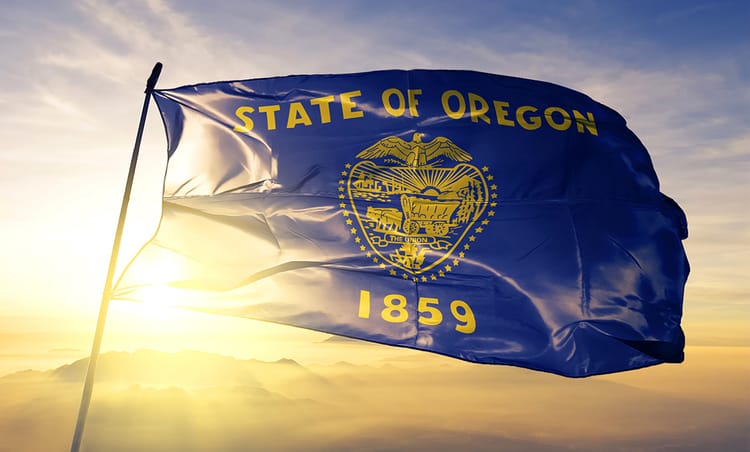Oregon Lawmakers Reach Session’s Final Week

With little more than a week before lawmakers are constitutionally required to adjourn their session on Sunday, June 27, the state budget and final policy measures are taking center stage. The budget-writing Ways & Means Committee is holding regular meetings to advance bills from the appropriations process and, at times, setting the stage for the session’s premiere floor fights that will play out in real-time next week.
On Tuesday, Gov. Kate Brown (D) vetoed a funding component within the legislature’s budget for public schools that relied on a transfer from a rainy-day account. Before the legislature passed the budget bill, the governor signaled concerns that drawing the money from the reserve account could violate a provision in the state constitution conditioning the action on a significant economic downturn. Since the state economic and revenue outlook rebounded strongly from the early days of the pandemic, the legislature’s action to draw funds from the reserve account may stand on shaky legal ground. Although the veto amounts to a $200 million reduction in funding for public schools, the legislature could find the funds elsewhere as part of its omnibus budget.
The Ways & Means Committee started tackling some of the more substantive and controversial policy measures this week. For example, the committee advanced a high-profile proposal to overhaul the state’s recycling system to require product brands and manufacturers to pay for sorting, collecting, and disposing of plastic, paper, and other types of packaging. The Department of Environmental Quality, the state agency spearheading the effort, has been criticized throughout the session for crafting the legislation without industry input, stirring immense frustration from stakeholders and some lawmakers. Similar recycling mandates appeared in state legislatures across the country this year but failed to receive their lawmakers’ blessing. The Ways & Means Committee activity suggests that Oregon’s proposal could become the first in the country enacted into law.
The legislature has a long week of budget committee meetings and floor sessions in store for next week as lawmakers near their finish line. The Ways & Means Committee will soon release the budget documents containing the omnibus budget measures, encompassing all state bonding for capital projects and appropriations to state agencies for prioritized programs. Additionally, the legislature must finalize its plan for spending the $1.9 billion allocated from the American Rescue Plan Act. Earlier in the session, House Democrats and Republicans agreed to suspend the requirement to read bills in their entirety before voting on the floor in exchange for each legislator receiving an equal amount for projects in their district. The deal is a unique experiment in coordinating the state budget that will come into focus as those budget documents are released into the wild.
Finally, parliamentary rules will become a major focus for the legislature in its final week. Oregon’s Constitution requires the legislature to hold measures in a queue the day before the bill comes up for a vote on the floor. This queue, called a “reading,” is often dismissed as a formality, but it becomes a negotiable item in the final days of a session as the presiding officers seek ways to convince the minority party to suspend the requirement in order to swiftly advance final legislation of the session. These negotiations tend to play out in a session’s last days and are greeted with glee and disappointment from stakeholders.





